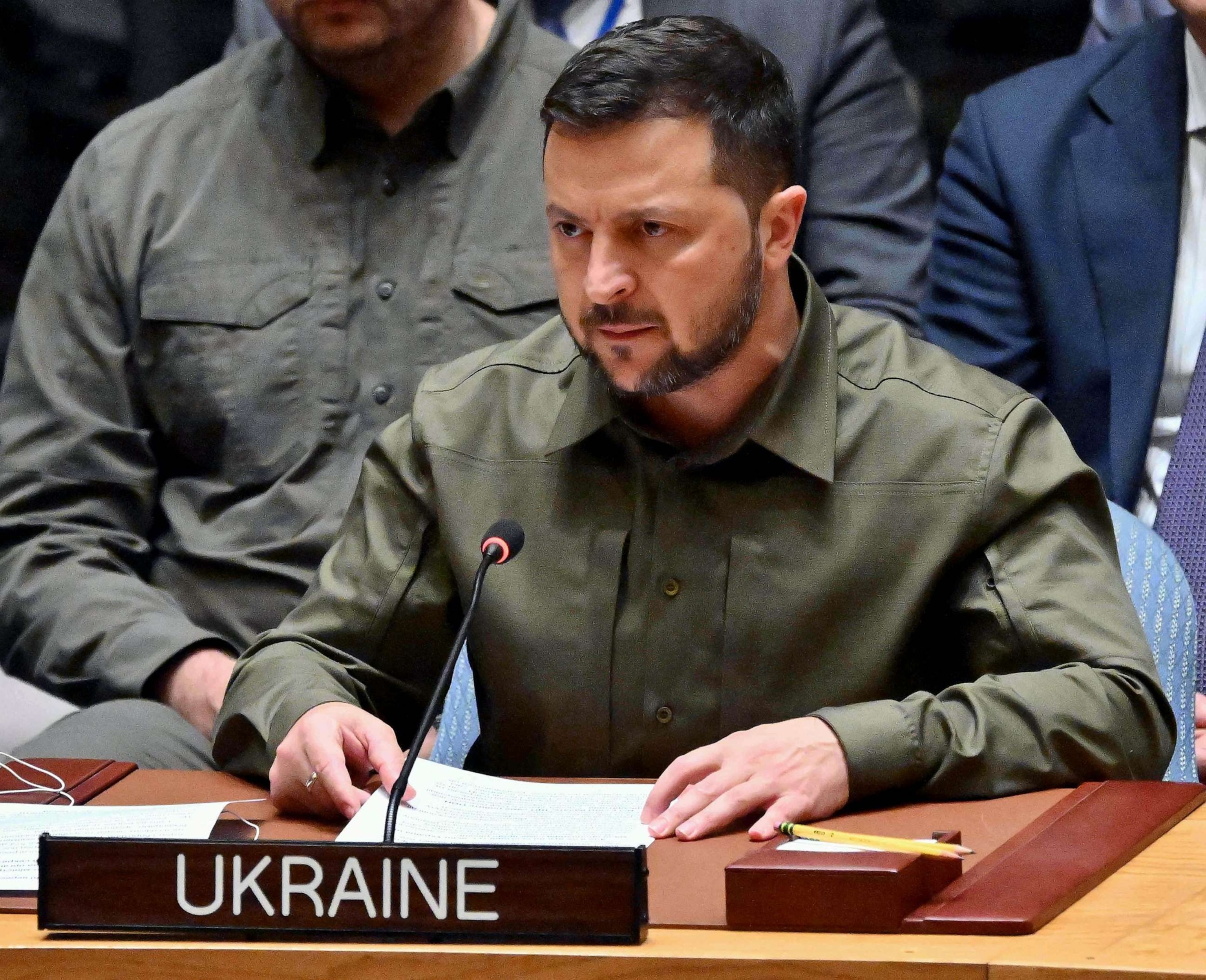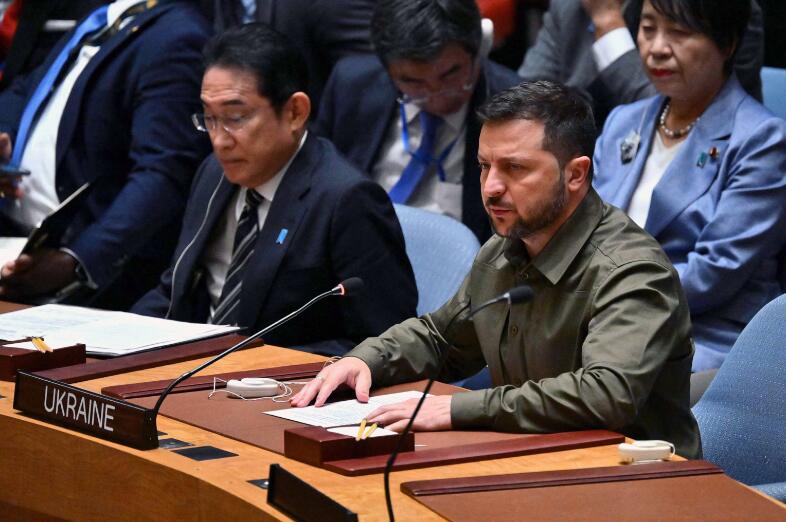Zelenskyy avoids confrontation with Russian foreign minister in remarks before UN Security Council
Volodymyr Zelenskyy avoided a potential face-off with Russian Foreign Minister Sergey Lavrov during the Ukrainian president’s first in-person appearance before the United Nations Security Council on Wednesday.
Speaking via a translator, Zelenskyy called for Russia to be stripped of its veto power — a move rendered virtually impossible by the structure of the U.N. charter.
“Since the start of the full-scale aggression launched by this state, which for some reason is still here among the permanent members of the U.N. Security Council, it has already been 574 days of pain, losses and struggle,” Zelenskyy said at the top of the meeting. “Russia has killed at least tens of thousand of our people and turned millions into refugees by destroying their homes.”
“The terrorist state is willing, through its aggression, to undermine all the grounds of international norms meant to protect the world from the wars,” he continued.
Zelenskyy went on to say that the U.N.’s inability to meaningfully intervene in the conflict had greatly diminished its standing.
“The resolutions of the General Assembly have clearly recognized the fact that the only source of this war is Russia, but this has changed nothing for Russia in the United Nations. However, these are the situations that have changed everything for the U.N. We should recognize that the U.N. finds itself in a deadlock,” Zelenskyy said, arguing the organization had become centered on “compromise with killers” and rhetoric instead of action.
“Humankind no longer hangs its hopes on the U.N.,” he added.
Zelenskyy then outlined his peace plan but acknowledged it could not be implemented due to Russia’s veto power.

The remarks come a day after Zelenskyy addressed the U.N. General Assembly and argued that the war is “not only about Ukraine.” He emphasized that if Russia is allowed to get away with invading Ukraine, then no rule-abiding nation can consider itself safe from a similar attack or aggression in the future.
During Wednesday’s Security Council meeting, Russia’s U.N. ambassador, Vasily Nebenzya, criticized Zelenskyy speaking ahead of the other members of the Security Council, calling for him to speak after per protocols.
“They’re trying to transform [the Security Council] into a one-man stand-up show,” Nebenzya said.
Albanian Prime Minister Edi Rama, who chaired the meeting, pushed back, saying: “There is a solution for this, if you agree — you stop the war, and President Zelenskyy will not take the floor.”

Lavrov was not in the chamber during Zelenskyy’s remarks.
In a long rebuttal via a translator, the foreign minister reiterated false claims that the West implemented a “coup” to install Zelenskyy as Ukraine’s president as justification for Russia’s invasion and that Moscow was forced to intervene in Ukraine to stop “the criminal actions of the Kyiv regime.” He also suggested that the U.S. was still in control of Kyiv and could force Zelenskyy to participate in peace talks.
On the U.N. itself, Lavrov said it was nothing more than a tool for Washington to push its own agenda on the world but generally called for upholding its charter.
Zelenskyy was not in the chamber during Lavrov’s rebuttal.
Prior to Lavrov’s remarks, U.S. Secretary of State Antony Blinken spoke in support of Ukraine while blasting Russia, which he said is “committing war crimes and crimes against humanity in Ukraine on an almost daily basis.”
“It’s hard to imagine a country demonstrating more contempt for the United Nations and all it stands for. This, from a country with a permanent seat on this council,” Blinken said.
Blinken also argued that the U.N. could focus on supporting Ukraine and holding Russia accountable for its actions while addressing other pressing issues facing the world.
“We can and we must do both. We are doing both,” he said, adding that the U.S. was the leading contributor on several critical fronts.
President Joe Biden is set to meet with Zelenskyy at the White House on Thursday as both men push Congress to approve $24 billion more in funding for Kyiv over the objections of some House Republicans.
